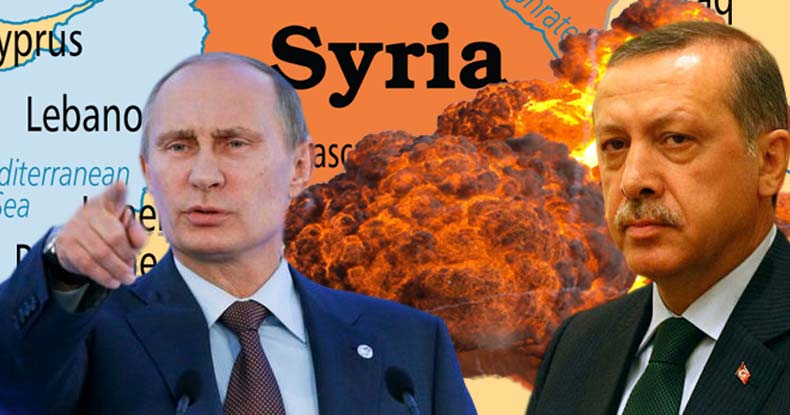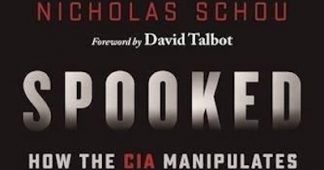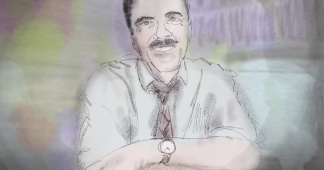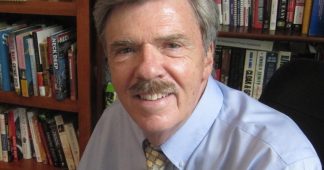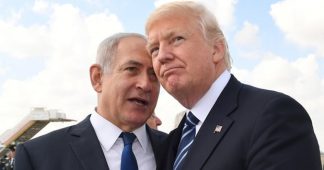The late publisher of Consortium News was a trailblazer who held lazy reporters and groupthink in the highest contempt.
By Kelley Beaucar Vlahos
February 2, 2018
Generations of eager journalism students, for at least a brief moment in their budding careers—particularly during that golden window after Watergate and before Monica—wanted so desperately to be Bob Woodward and Carl Bernstein.
No one ever wanted to be Robert Parry. But they should have.
Woodward and Bernstein made their mark in a series of Washington Post stories that eventually brought down President Nixon, even though the average American today couldn’t tell you what Watergate was really about. Nevertheless, the pair were embraced and mythologized by Hollywood and the liberal political establishment, their place in the pantheon, set. Woodward has been particularly successful, carving out a niche as an sanctioned gossip and chronicler of the Washington courtier class. But since “Deep Throat,” the closest he’s come to ripping the lid off anything in any subversive and enduring way is a cup of coffee on the set of Meet the Press. Still, Woodward’s friends at the Weekly Standard, in an oft-repeated panegyric, call him “the best pure reporter of his generation, perhaps ever.”
Not quite. Parry, who died on January 27 after a recent diagnosis of pancreatic cancer at age 68, was also a Boomer reporter who cut his teeth on the biggest scandals in recent memory. As an Associated Press journalist he broke the story of Colonel Oliver North’s involvement in the Iran-Contra affair in 1985. A year before that, he won a George Polk Award for exposing the CIA’s production of an assassination manual for the right-wing contras the Reagan administration was supporting to overthrow the elected leftist government in Nicaragua.
Author and TAC contributing editor Mark Perry, who met Bob in the mid-1980s (at the height of Iran-Contra), remembers what he describes as “Bob’s absolute laser focus on a story, on getting what no one else could.”
“I think that’s what set him apart,” he added in an email. “But it was really the short attention span of the mainstream media that I think most bothered him. He was a reporting bulldog, and he would keep at it.”
Knowing how this business works, the nearly middle-aged Parry could have taken the moment to burrow in, enjoy the warm embrace of the mainstream, even bask in the sunshine of his new celebrity. But he made the decision, and it would prove portentous, to quit AP when he felt his Iran Contra stories were being watered down and delayed due to efforts at the highest levels of the newspaper and the U.S. government to get the release of AP correspondent Terry Anderson, who had been held hostage for nearly seven years during the Lebanese Civil War.
A humble man by all appearances, and respected by those who knew him over the years, Parry was raised in a newsroom—his father was the editor of the Middlesex Daily News in Framingham, Massachusetts. “I was taught that there were almost always two sides to a story and often more. I was expected to seek out those alternative views, not dismiss them or pretend they didn’t exist,” he wrote. That’s not just quaint New England windage; it’s what most reporters are taught in Journalism 101. The difference between reporters like Parry and the jaded status seekers of his generation is that Parry never forgot. He never stopped “questioning the Official Story,” and carried a disdain for groupthink and the D.C. media hive that not only lasted a lifetime, but defined his identity. For this he was viewed by his like-minded peers throughout Washington and beyond the Beltway as a journalist of sterling integrity.
That’s far more valuable than a million bestsellers and placement on the imperial city’s social registries. However, it also can mean permanent exclusion from “the body” and all of the material blessings bestowed upon those who play the game. Parry left the AP and worked on investigative pieces for Frontline before finally, taking advantage of the new, accessible promise of the Internet, starting ConsortiumNews.com in 1995 on a shoestring budget. For the next 20 years he encouraged and aided countless writers engaged in professional, courageous journalism on issues of foreign policy, national security, and the environment. He championed tragic underdogs like Garry Webb, who was cast out of the profession after a well-orchestrated government-media blowback campaign against his 1998 series “Dark Alliance,” in which he attempted to establish CIA complicity in the rampaging crack trade in 1980s Los Angeles (Parry and fellow AP reporter Brian Barger had actually broken the first story about the CIA-Contra-cocaine matrix in 1985). Destitute, Webb committed suicide in 2004.
“To this day, none of the journalists or media critics who participated in the destruction of Gary Webb has paid a price,” Parry wrote in an exhaustive autopsy of the Webb story in October 2014, highlighting reams of new information supporting Webb that were brought to light in a 1998 Justice Department investigation.
“None has faced the sort of humiliation that Webb had to endure. None had to experience that special pain of standing up for what is best in the profession of journalism, taking on a difficult story that seeks to hold powerful people accountable for serious crimes, and then being vilified by your own colleagues, the people that you expected to understand and appreciate what you had done.”
As recently as this June, ConsortiumNews has given an annual Freedom of the Press award in Gary Webb’s name. Parry has spent the last 20 years criticizing the media’s role in the Iraq invasion, the ongoing wars overseas, and “the same terrible journalism” that allows the elite—whether in Washington or on Wall Street—to abuse the power and trust and pocketbooks of the American people. Before he died he was quite candid that these realities had only gotten worse, drawing fire from the left for questioning the political motives and machinations behind the Russian collusion investigation.
“The major Western news outlets now conflate the discrete difficulties from made-up ‘fake news’ and baseless ‘conspiracy theories’ with responsible dissenting analysis,” he wrote. “All get thrown into the same pot and subjected to disdain and ridicule.”
Investigative journalist and TAC contributor Gareth Porter, a long-time friend of Parry, was, like many of Parry’s friends, thunderstruck by the news of his illness and death last week. “Bob was absolutely unafraid of the most powerful men and institutions in this country. He was free of any ideological agenda, but he was committed to penetrating the lies that he knew were second nature to the national security state, and nothing could stop him,” Porter wrote in an email.
“He was the one editor a journalist could count on to publish articles that challenged that assault on freedom of thought in the United States,” Porter added.
As the Washington Post pretentiously promises to ensure that democracy does not “die in darkness,” we know all too well that it’s the unsung heroes like Parry who actually sacrifice everything for the cause. Perhaps someday, he and others like him will replace Woodward and Bernstein in the hopeful heads of dreaming J-school students. It would be our small contribution, as torchbearers of this profession, for all of its faults, to endeavor forthwith to make that happen.
Kelley Beaucar Vlahos is the executive editor of The American Conservative. Follow her on Twitter @Vlahos_at_TAC.
Published at http://www.theamericanconservative.com/articles/robert-parry-a-man-of-journalistic-integrity/
